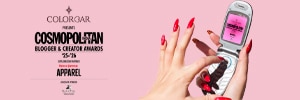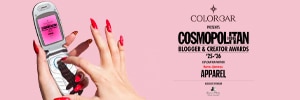Should celebrities be forgiven for the controversial things they said years ago?
Accountability matters—but should one careless comment follow a celeb forever, or are some slip-ups beyond forgiving?

If there’s one thing the internet never forgets, it’s a celebrity’s badly phrased comment. In a world where every interview bite becomes a reaction GIF, and every offhand remark becomes a discourse starter, Bollywood stars often find themselves haunted by statements they made years ago. And honestly? Some of those moments did deserve some of the scrutiny they received.
Take Nora Fatehi. When she made her debut on The Tonight Show Starring Jimmy Fallon—a genuinely historic moment for Indian pop culture—her feat was widely celebrated by fans. But soon after, the internet pulled out receipts of her problematic statement on feminism and pointed out that the global visibility she enjoyed that week was possible because of the feminist movement she had publicly dismissed.
Fatehi addressed the backlash in follow-up interviews, attempting to clarify that her words were taken out of context. She went on to say that she supports equality for women, and that her comments were criticising "radical feminism" and not Wave 1 feminism. However, for many, the damage was done, not because she voiced an unpopular opinion, but because the comment revealed a deeper lack of awareness.
But she wasn’t alone. Years earlier, Mira Rajput’s “my child is not a puppy” remark had triggered a wave of frustration among working mothers, many of whom felt their struggles were being trivialised by someone speaking from a position of immense privilege. Rajput later explained that she was speaking about her journey as a young mother, not passing judgment on anyone else. Her clarification was reasonable, but the quote lived on, recycled far beyond its original context.
Alia Bhatt, too, unintentionally wandered into choppy waters when a casual anecdote about Ranbir Kapoor telling her to “wipe off” her lipstick turned into a viral analysis of relationship dynamics. The conversation it sparked about subtle control and boundaries was important, especially considering Bhatt’s influence on young followers. But the way the internet attached the incident to Bhatt's identity, repeatedly using it as evidence of her relationship dynamic, felt disproportionate. On Koffee With Karan, Bhatt stated that the anecdote was shared playfully and was never meant to frame her relationship as controlling. She expressed surprise at the internet’s interpretation and the time people invested in peeling the layers off her supposed casual remark, but her follow-up did little to stop the clip from becoming a recurring reference point.
On the other hand, Kapoor too did not hold himself back when he casually body-shamed Alia and joked her about having gained weight while she was pregnant. It may have been delivered as humour, but that’s precisely the issue: turning a pregnant woman’s changing body into a punchline reflects how ingrained and unexamined male entitlement is, even among the most influential stars. While he did not directly address the comment, he had later admitted that he does have a "bad sense of humour" which gets him into trouble more often than not.
And who can forget Ananya Panday's “I’ve struggled too” statement, which became Bollywood’s favourite meme for months. Under the jokes, there was a real conversation to be had about privilege and access—something the internet only half-addressed before turning her into a caricature. Panday later admitted she understood why the comment upset people, a reminder that young celebrities often learn in public, under harsh lights they didn’t fully anticipate.
Even someone as widely admired as Deepika Padukone wasn’t spared. While discussing her relationship with husband Ranveer Singh on Koffee With Karan, Padukone was candid about dating other men while she was “seeing” Ranveer Singh. Naturally, it set off a storm of takes about loyalty, relationships, and double standards. The moment was pulled out of context, hitched to one meme-able poker face reaction shot from Singh, and kept alive far longer than it ever should’ve been. Padukone never clarified the remark, but the internet’s near-annual resurrection of the clip feels unnecessary at best, invasive at worst.
And it's not just actors who have made such problematic comments. Remember cricketer Hardik Pandya bragging about having sexual relationships with multiple women on Koffee With Karan? Pandya was bashed left, right and centre, and the backlash was so intense that the episode was officially taken down from the internet. And while we are at it, how can one forget the very recent controversy surrounding comedian Samay Raina and internet personality Ranveer Allahbadia? They were cancelled for their comments on the show, India's Got Latent, after the latter asked a contestant, "Would you rather watch your parents have sex every day for the rest of your life, or join in once and stop it forever?" The two were dragged to the cops, the show got cancelled, and despite their public apologies, the incident is fresh in the minds of netizens.
So, should celebs be forgiven for their problematic comments?
Of course, accountability isn’t optional for public figures. They shape culture whether they intend to or not. Their words deserve scrutiny, and their statements should be held to a standard that matches their influence. But the way that critique manifests today often blurs lines between accountability and aggression, between productive conversation and performative outrage.
Which brings us to the larger question—where should the line be drawn? At what point does calling out slide into piling on? And how should public figures, audiences, and the internet collectively navigate the distance between a misstep and a moment that defines someone for years?
There isn’t a single conclusion here—only a conversation that continues to grow as celebrity culture, social media, and public expectations collide. What remains clear is that these moments aren’t just about who said what. They’re about how we, as a digital audience, choose to respond, remember, and react.
Lead image: Getty Images
Also read: Inside the rise of brand romance, where celebrity love stories double as business deals
Also read: Red is cinema's favourite clue that something is about to change
more from Celebrity

‘Heated Rivalry’ stars Connor Storrie and Hudson Williams are taking over the Winter Olympics

The Beckham family drama: A classic case of boy mum vs wife energy

A recap of the previous standout winners from the Cosmopolitan Blogger & Creator Awards - Entertainment edition

Meet paperclipping the low-effort dating trend that keeps you stuck longer than ghosting

Why the heeled ballet flat is the office shoe everyone’s switching to

Stroll, don’t scroll: 5 fun things to do during lunch that don’t involve your phone

‘Lean into sexual currency’: How to initiate sex when you and your partner are struggling to get into it

‘Deeper, hotter, hornier—and more yearning’: What sex and dating will look like in 2026

‘I lied because I felt insecure about it’: How our vulnerability crisis is killing our dating lives

Are you vanilla or kinky? Gentle or animalistic? Personality-style quizzes are coming for your sex life


